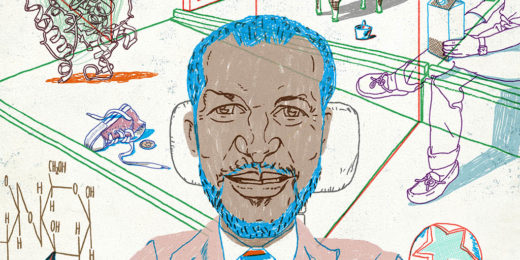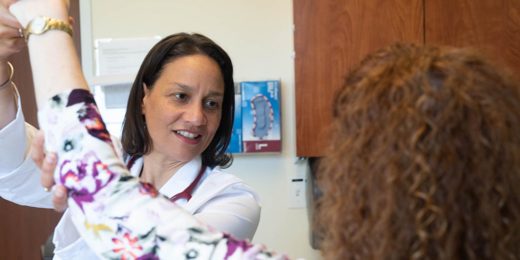Steps must be taken to prevent bias in sex, gender and race in health data gathered using artificial intelligence, Stanford researchers write.
Category: Diversity, Equity & Inclusion
Maternal care and race: ‘Birth equity is where a whole life starts’
Across the U.S., unequal medical care is harming nonwhite new moms and their babies. Stanford experts are studying how to flip the trends.
Elite gastroenterologist’s path to being a champion of diversity
As an African American who also has a disability, Eric Sibley provides a role model for others within academic medicine.
Stanford Medicine magazine reports on racial inequity in medicine
The new issue of Stanford Medicine magazine examines racial inequity and inequality in medicine, and explores initiatives to close care gaps.
Closing racial gaps in medical residencies could take decades
A new study shows that increasing Black and Latino representation in medical residencies to match U.S. population representation could take decades.
Creating a community of medical workers with disabilities
Peter Poullos, a disabled Stanford radiologist, discusses challenges facing disabled medical workers and Stanford Medicine's upcoming disability conference.
Technology equality gap for kids’ diabetes treatment is growing
As more children and teens with diabetes use technology to treat the disease, U.S. kids of lower socioeconomic status are being increasingly left behind.
Affordable Care Act subsidies reduce health care costs for low-income Americans
A Stanford Medicine researcher finds that the Affordable Care Act's insurance subsidies have protected low-income Americans against high medical costs.
‘You’re going to be a nurse’: A champion of equity in patient care
Sharon Hampton is focusing on patient equity as a nursing leader at Stanford Health Care. Getting to know patients and staff is key, she says.
Community bonds help barbers improve health for Black men
A program that trains barbers to coach Black men about their health and wellness helps bridge health equity gaps by tapping into built-in community bonds.
Less is more? Focused genetic testing recommended for breast and ovarian cancers
Ovarian cancer genetic testing is underused and large gene panels lead to uncertain results, particularly for non-white patients, a Stanford Medicine study finds.
Lessons in inequity from a global health study
A public health program in India improved maternal and child health initially, but was at risk of leaving behind disadvantaged participants when it expanded.
How telehealth has exploded during the pandemic and why it is here to stay
In Stanford Medicine's Recover, Restore and Re-open framework, experts discuss how the shift to telehealth likely represents the new norm.
COVID-19 as a ‘wake-up call’ for creating more equitable health care
Recover, Restore and Re-open, Stanford Medicine's framework for navigating the pandemic, addresses health disparities among racial groups.
Biracial Stanford physician: We must look beyond race in medicine
Megan Mahoney, Stanford Health Care's chief of staff, discusses racism and bias in the nation's health care system and how it can be overcome.
E-cigarette companies use COVID-19 to sell nicotine, study finds
A study from Stanford researchers documents "aggressive and deceptive" ways that companies have used COVID-19 to market vaping products.

















